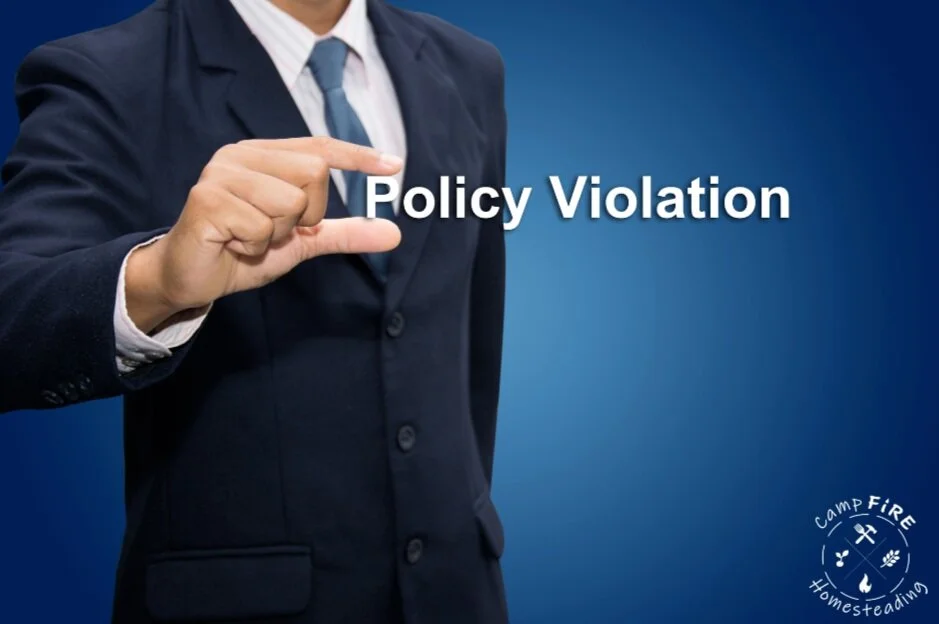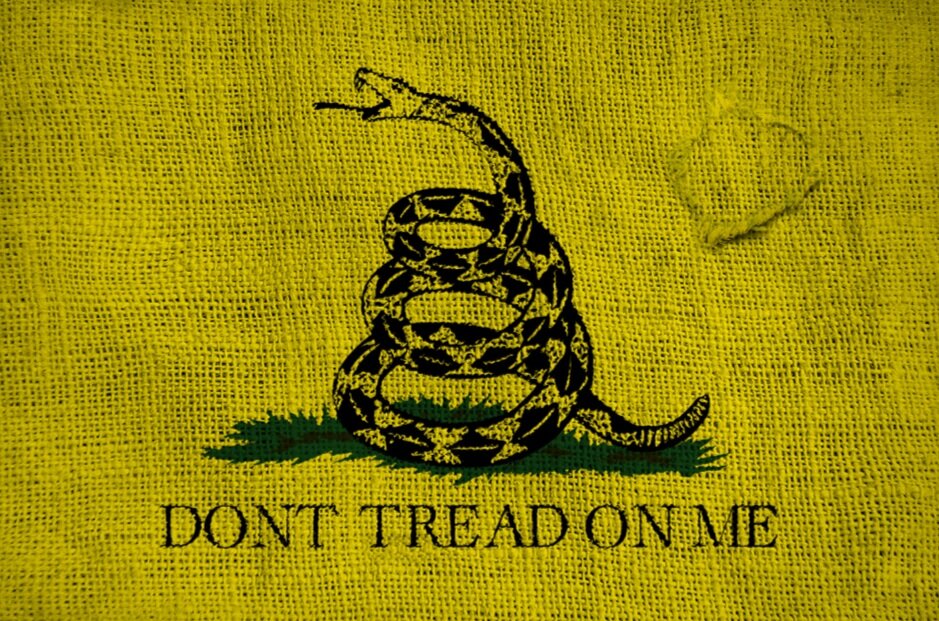Can Homesteading Survive Another 50 Years of Restrictive Policies?
Before we begin, we must highlight that there are in fact two homesteads; the lifestyle choice where an individual lives a more self-sufficient life and legal designation called Homestead that is recognized by the government. Throughout this article, we will address both but make it very clear when we are making a distinction between the two.
Homestead Designation vs Homesteading Lifestyle:
Homesteading Designation - a special status conferred to a property by the State that provides specific benefits, typically in the form of tax reduction.
Homesteading Lifestyle - an individual lifestyle choice to be more self-reliant, self-sufficient, and live off the land.
Homesteading in Early America
We argue that homesteading, as a lifestyle choice, was in practice well before there was a government recognition of the practice. One needs to look no further than early America and the history of Europe for the evidence. For homesteading history fans, May 20, 1862 is an important date. It marks the passing of the Homestead Acts. In essence, these allowed citizens to apply for the use of up to 160 acres of Western land for a minimal fee. In hindsight, however, we know that this was also part of a larger effort to drive what we affectionately call, ‘Western Expansion’.
Homesteaders headed West to conquer the untamed lands of the Wild West.
It worked! Americans left the east coast of America and traveled westward to claim their own piece of heaven, and the did it fast. By 1920, government-authorized homesteads exploded in volume. Between 1911 and 1915, the government transferred 42,539,903 acres of land to aspiring homesteaders, according to archives of the National Park Service.
The national Homesteading Acts remained in effect for 114 years, repealed in 1976. However, aspects of the Homesteading Acts were kept in place for the State of Alaska until 1986.
Effort to Limit Homesteading
Shortly after the explosion of homesteading applications noted in the 1920s, the Federal Government stepped in to issue its first national regulation of the practice, excluding Alaska. Called the Taylor Grazing Act of 1934, this legislation provided the first overgrazing protections for public lands in an effort to promote better caretaking of pastures, according to a historical recounting from the Bureau of Land Management.
An unstated implication of the Taylor Grazing Act was that homesteaders, now operating on government-granted plots of grazing land, would soon find that having massive quantities of cattle for grazing would in essence put them at risk of violating Federal Law; the more cattle, the more grazing, increases the likelihood of overgrazing. Homesteaders, although not directly ordered to decrease the number of their cattle were now put in the position make a decision to keep Washington. D.C. off their backs.
Since the Repeal of the Homestead Act
Since the Homesteading Acts were repealed, each of the States have approached homesteading in their own way. Depending on where you live, there are differing requirements to seek a State-recognized homestead declaration. Although most states have differing legal standards and benefits of homesteading, this is notably separate from the individual lifestyle choice citizens make to live a more self-reliant lifestyle.
For example, here in Nebraska, a property must meet the following requirements: the maximum value of property $60,000, Maximum Acreage (Urban) 1 acre; 2 lots, Maximum Acreage (Rural) 160 acres. Additionally, the property own may also have to meet certain requirements. However, in the State of Missouri the requirements are notably less restrictive, where the maximum value of property is $15,000 and there is no maximum acreage for urban or rural areas. As disparate as each state’s requirements are, so are their homesteading benefits and tax reductions.
When you do some research on homesteading laws, you will interestingly find very few. As mentioned above, you will find State requirements for the property and the property owner, but there are not a lot of laws that specifically address homesteading as a State-recognized practice. However, there are policies that threaten the homesteading lifestyle without directly mentioning homesteading in any way.
Death By A Thousand Restrictions
When you think of all the things you do to live off the land on your homestead, we can often fail to give it a second thought. Here are a few interesting things to note about laws, codes, ordinances that may surprise you concerning homesteading in America.
Twelve States apply restrictions to water catchment and its use on private property, according to a website that has compiled U.S. water catchment laws.
Local and County governments have passed increasingly restrictive ordinances concerning how you can harvest livestock on personal property; some also limiting what type and how many of said livestock are permitted on personal property.
In 2017, if you lived in the Nation’s Capitol, the Mayor proposed a complete ban on having chickens, according to ABC News. A court in Ohio ruled that cities could ban chicken ownership entirely, according to the Ohio County Journal.
In 2019, a court in Florida ruled in favor of a city council ban on gardens. In 2013, Des Moines, Iowa considered bans on home gardens, according to MotherEarthNews.
Nearly every State in America requires some form of licensing or permit to sell farm or homestead eggs.
In the wise words of Mr. Joel Salatin, “everything I want to do is illegal.” Although this may seem funny to some, the famous adage only exists because of his documented fight with federal and state regulators against his sustainable and regenerative farming practices. His efforts to use regenerative farming practices were not met with national or state adulation, they were met with the ire of the government and efforts to regulate him out of existence.
What am I getting at here?
For over 50 years, increasingly restrictive laws, codes, ordinances and statutes have been passed that undermine homesteading as a sustainable lifestyle. (For more on this, see Homesteading Rights Are Not Equal In All States.) Although these measures have not passed or been accepted everywhere, in some cases they have and we have become accustomed to them. Through the process of incrementalism, Homesteaders have been conditioned to accept more and more restrictions on our way of life.
Homesteaders, as fierce protectors of our way of life, are on the look out for legislation that represents a direct threat.
In mid-October, we conducted an unscientific poll in a Facebook group that is dedicated to homesteading that was designed to represent a hypothetical measure that was obviously restrictive of homesteading practices. In an effort to simulate a sneaky political effort, we conducted the poll at 11:00 PM EST, leaving it open for one hour. Below is the hypothetical proposed measure:
Proposition 15, a measure that increases property taxes by 4%, enacts a livestock tax for each animal you have, enacts a water catchment tax of 31 cents per gallon, enacts an anti-carbon flat tax for those that use wood stoves/ovens, and enact a water protection flat tax on those who use well water. Those who can prove an annual income less than $30,000 can apply for a 60% tax reduction waiver.
Tax revenue will be used to support State infrastructure initiatives to retrofit city buildings with clean energy technology and electric public transportation (Bus and Rail).
The results were extremely clear. Out of nearly 250 respondents, 239 voted No; 9 voted Yes; and 1 person abstained. There it is. When faced when an obvious, and ridiculous, measure that so blatantly threated homesteading, Homesteaders voted the hypothetical legislation down with notable and passionate protest!
Why did we propose such a crazy measure? Our Proposition 15 served as the compilation of proposed measures over the past several decades. In 2010, the Senate proposed S-510, a bill that would have applied nightmarish anti-greenhouse gas regulations on cattle farmers. It also borrowed from Washington State’s measure that made it illegal to harvest rain water. We even went a step further and used tenants of the infamous ‘Green New Deal’ to propose anti-carbon initiatives and increase tax revenue for green projects.
We wanted to capture the vote results but also how Homesteaders would express themselves concerning this potential death blow to the homesteading lifestyle. As we figured, massive legislative leaps forward would not only not work, they would antagonize the homesteading community.
Conclusion - Vigilance is Required
Dominos will continue to fall if you don’t stop them…
Should legislative bodies with progressive agendas take incremental steps to restrict homesteading, the homesteading lifestyle landscape may look significantly more bleak 50 years into the future. Measures that restrict aspects of the homesteading lifestyle or a retraction of State-recognized homesteading benefits would almost certainly make homesteading an untenable or nearly impossible lifestyle choice. However, there will likely be those that find a way to continue homesteading living even within a legislatively-restrictive environment.
Absent a significant catalyzing incident, we cannot image a situation where homesteaders accept the passage of legislation that enacted sweeping restrictions to homesteading as a lifestyle, as proposed in our hypothetical Proposition 15. Regardless, homesteaders will have to remain vigilant given that U.S. and international proposals currently exist, that if passed or agreed to, would almost certainly represent an end to homesteading as result of increased taxes, permit requirements, land regulations, and the outright banning of specific homestead practices (ref. United Nations Agenda 21, United Nations Agenda 2030, and the Rewilding of America Project).
For more on how to stay involved, see A Strategy to Defend the Homestead.












